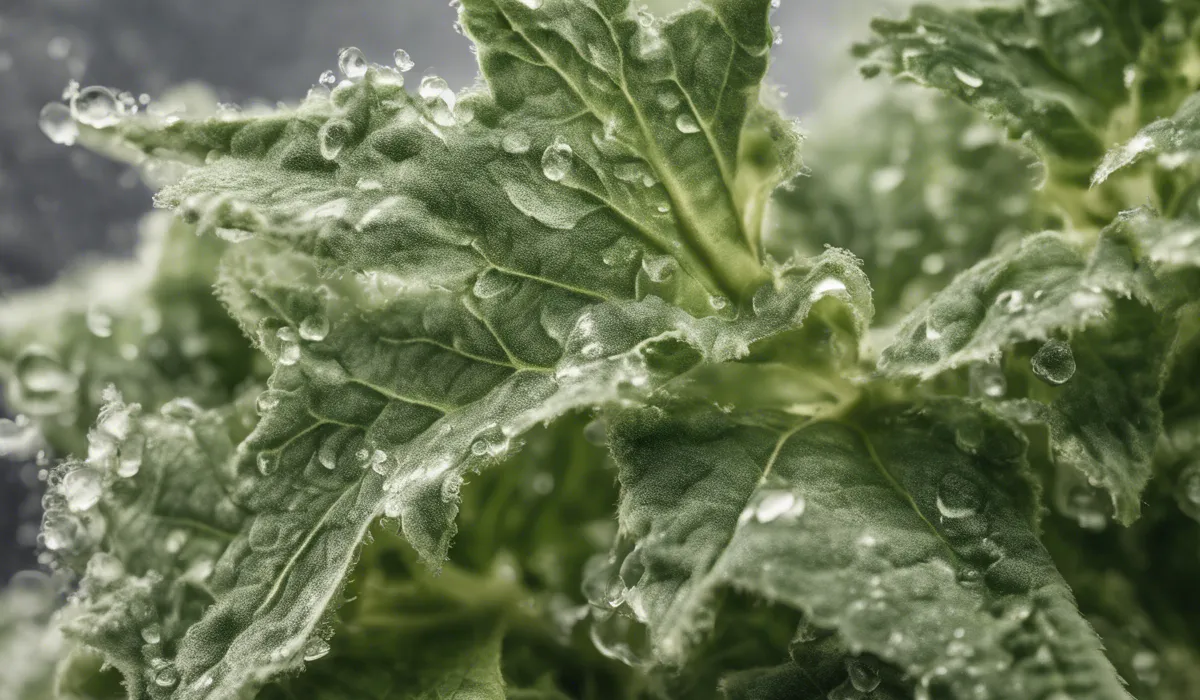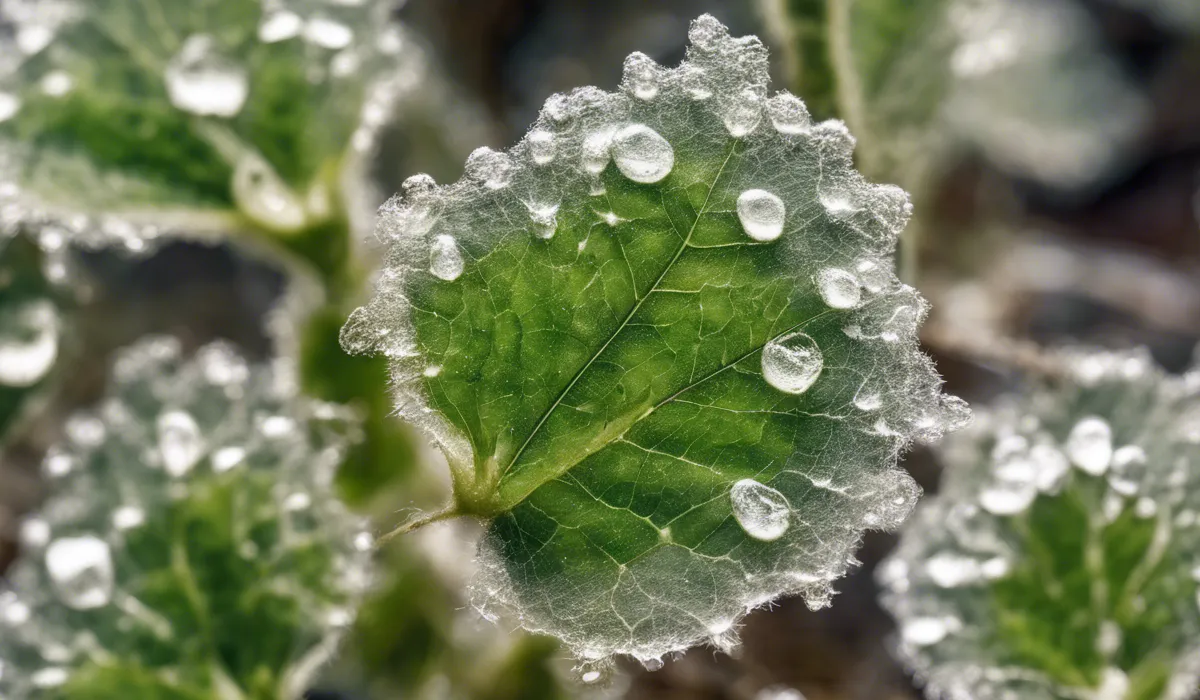Downy mildew primarily affects plants and is not considered harmful to humans. It does not infect human tissues or cause health issues when touched or inhaled. However, it can indirectly impact human health if it significantly damages agricultural crops.
Understanding Downy Mildew

Definition of Downy Mildew
Downy mildew refers to a group of plant diseases caused by oomycete microbes that are obligate parasites, meaning they must live on living plants to grow and reproduce.
These pathogens thrive in moist environments, resulting in a fluffy or downy appearance on the underside of leaves.
Causes and Development of Downy Mildew in Plants
The development of downy mildew begins when water-saturated conditions allow oomycete spores to germinate.
Once attached to a host plant, they penetrate its tissues, feeding on the plant’s cells and interrupting normal functions.
Favorable conditions for downy mildew include cool, damp weather, especially when these conditions persist for several hours.
Types of Plants Commonly Affected by Downy Mildew
Downy mildew can affect a wide range of plants, including economically important crops such as grapes, cucumbers, and potatoes.
Ornamental plants like roses and impatiens are also susceptible, as are many leafy green vegetables like spinach and lettuce.
Impact of Downy Mildew on Plant Health

Symptoms and Signs of Downy Mildew Infection in Plants
Infected plants display a range of symptoms, including yellowing leaves, stunted growth, and the characteristic downy growth on the underside of leaves.
The infection can also cause leaves to curl and drop prematurely, weakening the plant over time.
Consequences of Downy Mildew on Crop Yield and Plant Vitality
Severe downy mildew infections can lead to significant reductions in crop yield and quality. In some cases, entire fields can be lost if the disease is not managed promptly.
The reduction in plant vitality can also make plants more susceptible to other diseases and pests.
Potential Spread of Downy Mildew
Downy mildew can spread rapidly through a crop field, especially under favorable conditions.
Controlling its spread involves using resistant plant varieties, applying fungicides, and employing cultural practices such as proper spacing and crop rotation to reduce moisture and spore transmission.
Downy Mildew and Human Health

Effects of Downy Mildew on Human Health
While downy mildew primarily affects plants, it is not considered harmful to humans. It does not infect human tissues, nor does it cause health issues when touched or inhaled.
However, the presence of downy mildew in the environment can have indirect effects on human health, particularly through the economic impact on agriculture.
Toxicity and Allergenic Potential of Downy Mildew
Downy mildew is not known to produce toxins that are harmful to humans or to cause allergic reactions.
This is in contrast to some plant pathogens that can produce harmful mycotoxins or cause respiratory issues. Thus, downy mildew is considered safe from a toxicity and allergenic standpoint.
Effects Through Consumption of Infected Crops and Economic Impact
The most significant impact of downy mildew on humans is through its effect on agricultural productivity.
Infected crops may be unsellable, leading to food waste and economic losses for farmers. While consuming infected plants is not harmful, the loss of healthy crops can affect food availability and increase prices for consumers.
FAQs About Downy Mildew and Human Health
Is downy mildew harmful to humans when touched?
Downy mildew is not harmful to humans upon contact and does not infect human tissues.
Can inhaling downy mildew spores cause health issues?
Inhaling spores of downy mildew is not considered harmful to human health.
Does downy mildew have any indirect effects on human health?
Downy mildew can indirectly impact human health if it causes significant damage to agricultural crops, potentially affecting food supply and nutrition.
Should people with allergies be concerned about downy mildew?
While downy mildew is not known to be an allergen, individuals with severe allergies should consult with a healthcare provider for personalized advice.
Is it necessary to take precautions against downy mildew in gardens or farms?
While not harmful to humans, precautions should be taken to prevent the spread of downy mildew to protect plant health and agricultural productivity.
Final Thoughts
Downy mildew is a plant-specific pathogen with no direct adverse effects on human health. It does not infect or cause issues in humans when touched or inhaled.
The primary concern arises when it affects crops, potentially leading to agricultural losses, which may indirectly influence human well-being by impacting food supply and economy.
